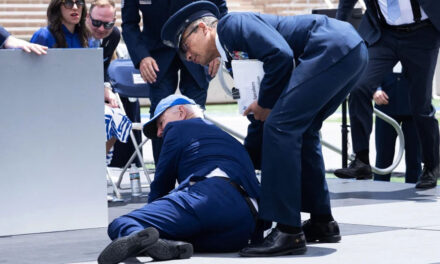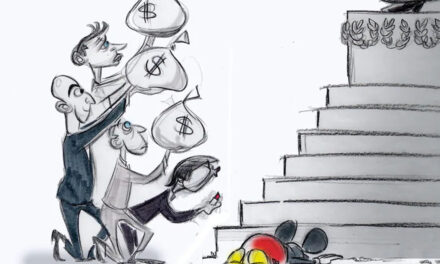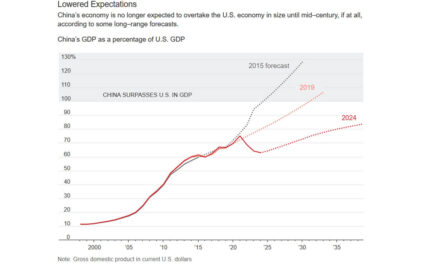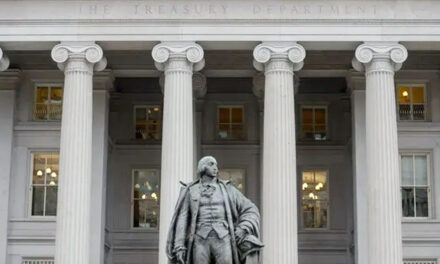
State Department Influenced by Russia Dossier Fabricator Steele
The next character in the Russia collusion debacle is Washington lawyer and former State Department official Jonathan M. Winer.
In an op-ed he wrote for the Washington Post, Winer admits to sharing information received from a Clinton operative with Christopher Steele, the former British spy who compiled the infamous anti-Trump dossier.
House Intelligence Committee Chairman Devin Nunes is investigating Winer as part of his broader investigation into the events surrounding the appointment of Robert Mueller to led the Russia probe.
“In the 1990s, I was the senior official at the State Department responsible for combating transnational organized crime,” writes Winer. “I became deeply concerned about Russia state operatives compromising and corrupting foreign political figures and businessmen from other countries.”
Winer left the State Department in 1999 and set up a legal and consulting practice, where he regularly dealt with Russian matters.
“I met and became friends with Steele [in 2009], after he retired from British government service focusing on Russia. Steele was providing business intelligence on the same kinds of issues I worked on at the time,” writes Winer, adding that the two men regularly discussed matters “relating to Russia.”
Winer returned to the State Department in 2013, at the request of then-Secretary of State John Kerry. It was at this point that Steele offered to share information with Winer and the US State Department.
“Over the next two years, I shared more than 100 of Steele’s reports with the Russia experts at the State Department,” writes Steele. “None of the reports related to US politics or domestic US matters, and the reports constituted a very small portion of the data set reviewed by State Department experts trying to make sense of events in Russia.”
In 2016, Steele told Winer he had learned of “disturbing information” regarding Donald Trump’s presidential campaign and Russian officials. The two men met in Washington later that year and “discussed the information now known as the ‘dossier.’”
“I was allowed to review a copy of these reports to enable me to alert the State Department,” writes Winer.
Winer took that information straight to Sidney Blumenthal, a longtime Clinton ally whose email was allegedly hacked by the Russians in 2013.
“While talking about that hacking, Blumenthal and I discussed Steele’s reports. He showed me notes gathered by a journalist I did not know, Cody Shearer, that alleged the Russians had compromising information on Trump.”
Winer notes the material was similar to what Steele had discovered but “appeared to involve different sources.”
Winer then shared Blumenthal’s information with Steele, “to ask for his professional reaction,” and let him keep a copy. Steele shared that information with the FBI.
We already know that Hillary Clinton was funding Steele’s research. What this new information from Winer means is that Clinton operatives were also providing intelligence that was included in the dossier and went to the FBI.
In a criminal referral released February 5th, Republican Senators Chuck Grassley (IA) and Lindsey Graham (SC) have asked the FBI to investigate Steele for lying to the FBI about his contacts with the media.
Author’s Note: I’m no expert, but it seems to me that Winer should not have been using a third party source like Steele to obtain influential material for the State Department. Doesn’t this mean that Winer is compromised?
Either way, Steele is a known fabricator and we must conduct a detailed review of all the reports he shared with Winer, where they came from, and how they influenced the State Department’s decisions.
This could represent a direct line of influence from Russian intelligence.
Editor’s note: I AM an expert, either Steele is fabricating his material (most likely) or it came from the Russians. Since Steele’s sources, if they did exist, were compromised by Steele’s carelessness he was certainly an unwitting agent of influence of Russia. If, as is more likely, he fabricated the material, then all of his past contributions to the State Department must be questioned, and should be reviewed for impact on policy.
























"I guess Dempsey favors putting bounties on heads of State. That has gone so well for us in the past.…
All shit. No bull. The only thing dangerous about you is the smell. You probably wouldn’t make it a week…
Joe Gilbertson: where are you going with these threats? My free speech is facing intimidation, sometimes physical threats. Is this…
NOT BUSTED. You didn't have to say it. That is what I meant in the above post from me. But…
Just another ruse for taking jabs at Biden through alleged short comings of his. Ten days remaining in Biden's term…